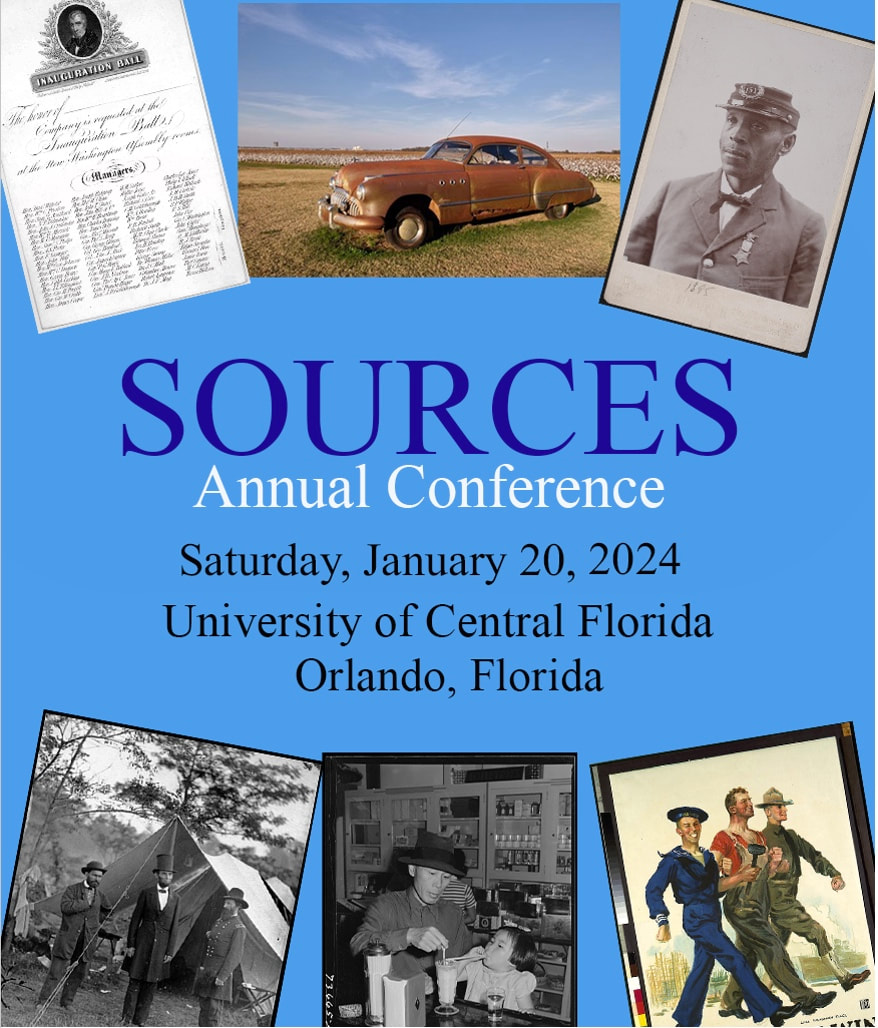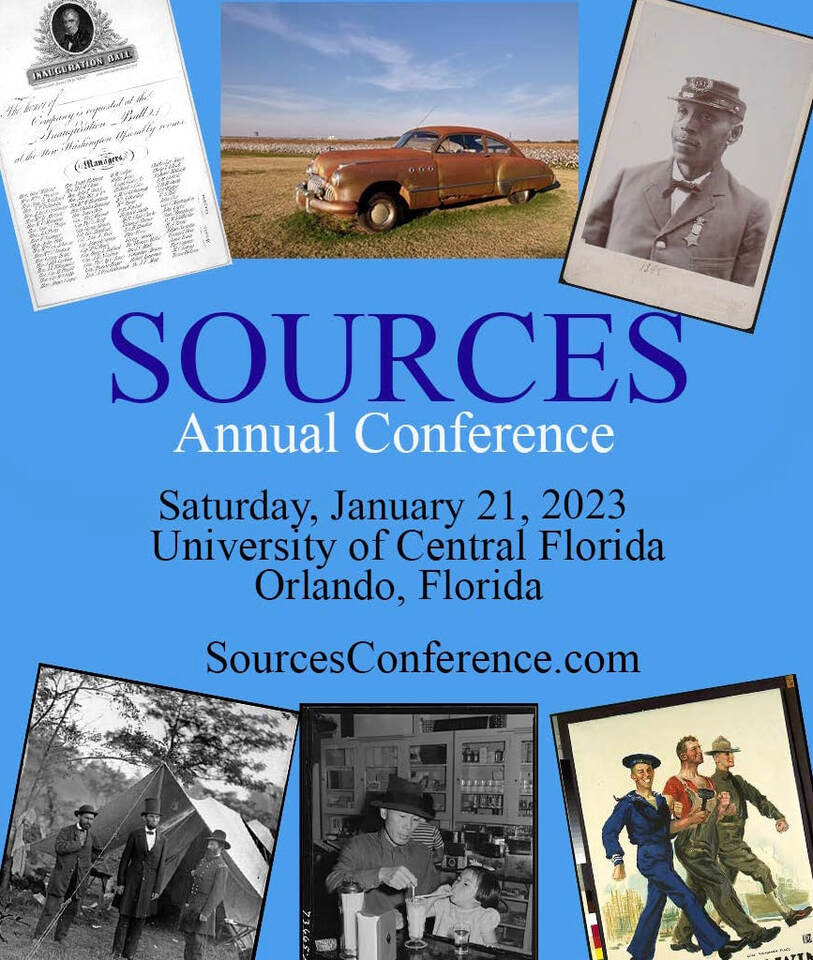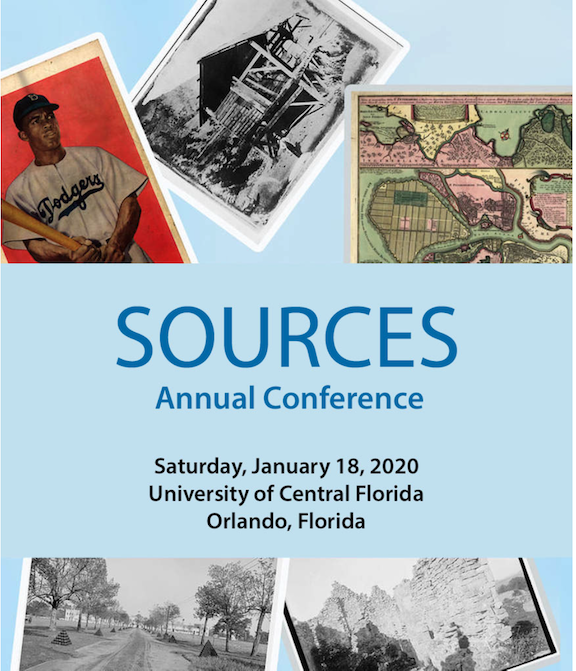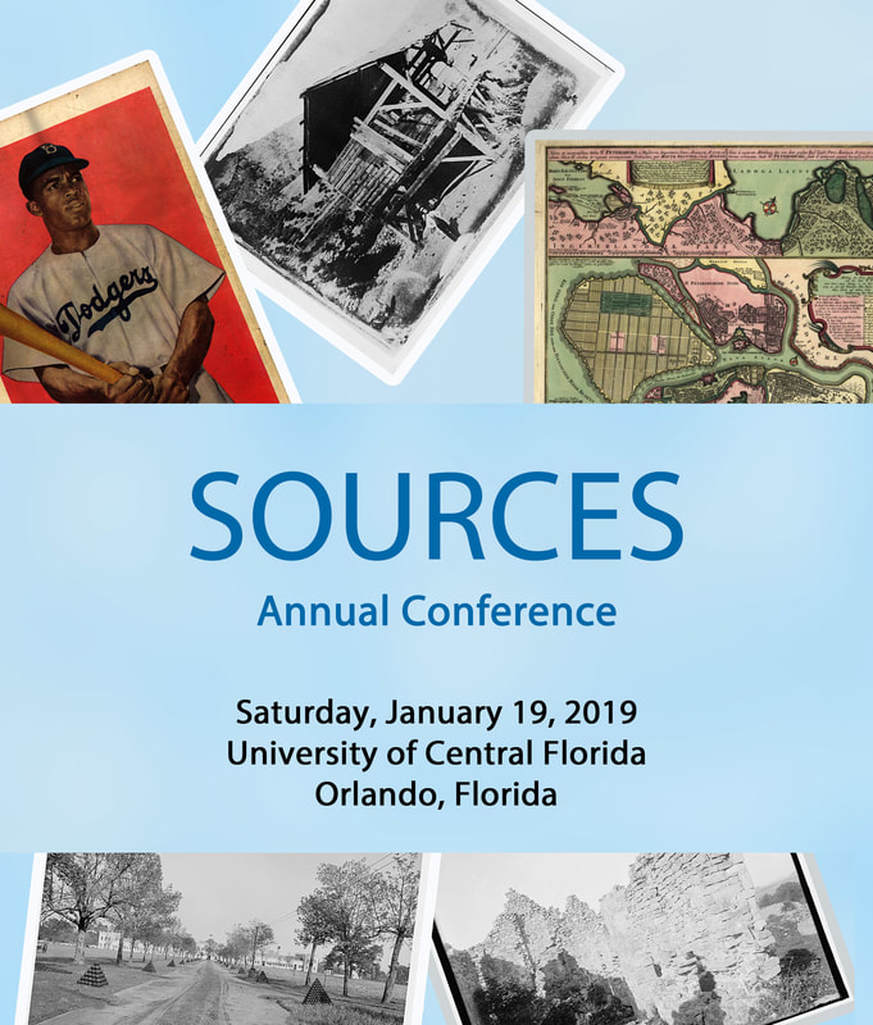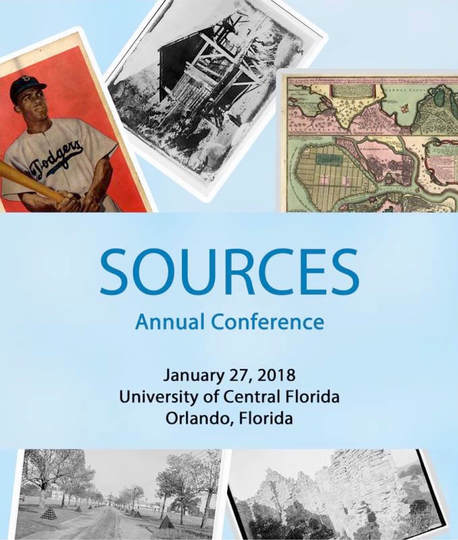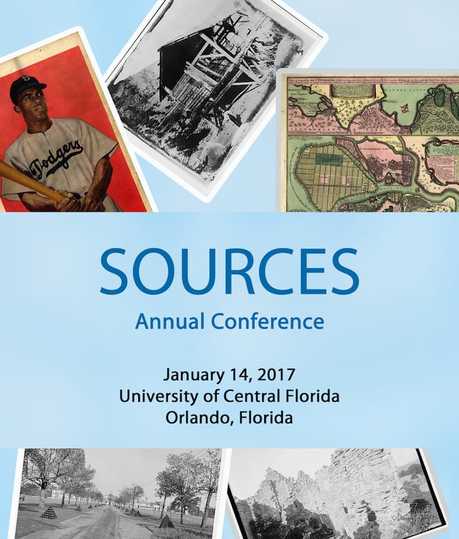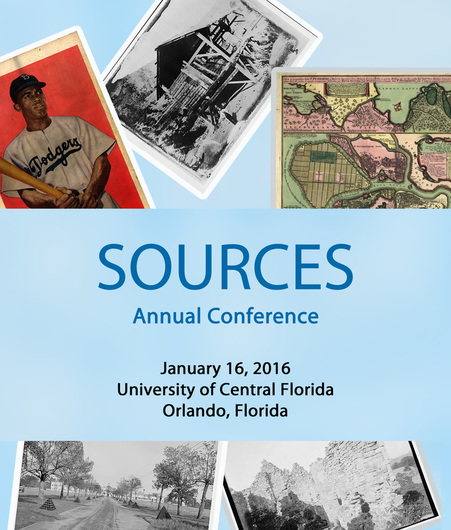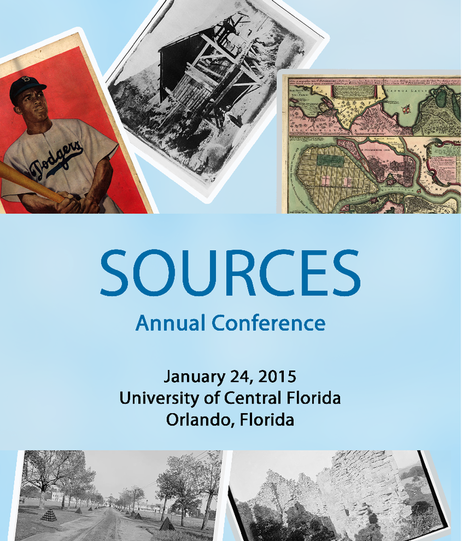2024 SOURCES Conference Program
Saturday, January 20, 2024
(pdf version of the program)
8:30 – 9:00 am - Registration and Light Breakfast
(In Teaching Academy Lobby)
9:00- 9:50 am - Welcome and General Session
Defining Democracy in the Early Republic: Who are “the People”? (Presentation)
Tammara Purdin, Jennifer Jaso, and Kacie Nadau
Florida Council for History Education
When examining notions of "the people" in the early republic, students have varying interpretations. The complex intentions and various perspectives from the time pose an opportunity for students to practice historical thinking skills and connect to the past. In this session, participants will explore and evaluate diverse documents of our history to broaden the context of peoples in the new nation. Through analysis and discourse, we will attempt to answer the central historical question: To what extent were the American people represented in the democracy of this era?
Tammara Purdin has been an elementary educator for 21 years and is the executive director for Florida Council for History Education.
Jennifer Jaso is a sixth, seventh, and eighth grade teacher of social studies and critical thinking classes, was a 2023 Florida Teacher of the Year State Finalist, and is a board member for Florida Council for History Education.
Kacie Nadeau has been a gifted 5th grade teacher of language arts and social studies for 21 years and is an adjunct professor for elementary social studies methods at the University of South Florida and the University of West Florida, and is a board member for Florida Council for History Education.
10:00- 10:50 am - Session I Presentations
Seeking the Seminole Indians: Environment-Adaptation-Culture
Laurie Boulden
Warner University
Wonder what life was like for Florida Seminole Indians? Walk with us through the Ah-Tah-Thi-Ki Museum. We'll be using hands-on analysis of primary sources with artifacts from the museum.
Traveling with Tertiary Sources (Presentation)
Jason Allen
Shepherd University
Using travel guidebooks from The Cold War and Modern eras, attendees will be introduced to how tertiary sources can reflect changes in historical points of view.
"Did He Just Say He Would Kill Everybody?": Primary Sources that Could End Worlds (Presentation)
Matt Stevenson
University of Tennessee at Knoxville
Using JFK's Cuban Missile Crisis speech, as a primary source, aids teachers in demonstrating the Fermi Paradox in action.
Untold Stories: African Americans in the Revolutionary War
Rachel Humphries
Bill of Rights Institute
Participants will analyze primary documents to connect actions taken by enslaved and free African Americans during the Revolutionary War to gain an understanding of the natural rights of equality and justice. Teachers will reflect and discuss how to best incorporate session materials into their own classroom. Teachers will leave with primary source examples, discussion questions, scaffolding prompts, and video prompts to help students explore the different paths taken by free and enslaved African Americans during the American Revolution.
Telling Our Story: Fostering Historical Understanding and Literacy using Primary Sources
Meghan Farley
Seminole County Public Schools
Kaira Kelly-Howard
University of Central Florida
This work promotes student engagement through hands-on, group analysis and evaluation of primary sources. The presenters will demonstrate specific strategies integrating primary sources into secondary instruction to help students tell stories about historical events or concepts.
Using Word Problems as a Primary Source to Analyze Culturally Relevant Challenges (Handout and Presentation)
Enrique Ortiz
University of Central Florida
We will analyze the possible hidden culturally relevant issues involved in word problems and other readings as primary sources. Using the culturally relevant pedagogy framework, participants will have the opportunity to create and analyze word problems.
11:00 - 11:50 - Session II Presentations
Centering Inquiry in the Elementary Classroom (Presentation)
Laurie Risler
Westfield State University
Participants will engage and interact with existing inquiry lessons which invite young learners to solve historical mysteries. Using Private i History Detectives, participants will explore age-appropriate sources from the Library of Congress, and work to identify sources to implement strategies addressing their own content.
Multisensory Engagement Strategies Using Primary Sources
Rebecca Hernandez
Duval Charter School at Baymeadows
Attendees will learn to think outside the box when using primary sources by creating multisensory lessons that engage students and help deepen understanding.
Beyond Brown v. Board: Exploring the Wilmington 10 through Primary Sources (Presentation)
Cara Ward
University of North Carolina Wilmington
Using a document from the LOC’s Rosa Parks archive as the basis, this session will explore the history of the Wilmington 10 as a counter narrative to Brown v. Board.
Teaching the History of the Arab-Israeli Conflict Using Primary Sources (Presentation)
Dori Gerber
Institute for Curriculum Services (website)
This session takes a historical approach to learning about the Arab-Israeli conflict and peace process, treating the conflict as part of modern history that emerged over a century ago. Through primary source and supplementary materials, participants will trace the development of the conflict from the late 19th century to the early 2000s, providing global, Middle Eastern, and European contexts for deep and nuanced understanding of this complicated topic. Support for Classroom Discussion on the Hamas-Israel War, as well as a collection of standards-aligned and content-focused resources to support instruction will be shared.
Curriculum Impacts: Perspectives of the Primary Source Creator, Selector, and Learner (Presentation)
Ken Carano
Western Oregon University
This interactive session explores variables influencing the primary source analysis process. Participants engage in activities to strengthen how they choose and analyze primary sources based on learning goals.
Setting the Stage: Strategies for Engaging Intros to Novel Studies
Melissa Starkey
Central Baptist College
"And… ACTION!" Explore strategies to hook students into novel studies using primary secondary sources while also providing
foundational background context and instructional supports for all learners.
11:50 – 1:10 pm - LUNCH – On Your Own
1:10- 2:00 pm - Session III Presentations
Museum in a Box: The Ocoee Election Day Massacre of 1920 (Presentation)
Kendra Hazen and Mary “Katie” Kelley
Orange County Regional History Center
A presentation of the Orange County Regional History Center’s Museum in a Box outreach program which is a primary source and object-based multimedia learning experience for 6th-12th grade students.
Understanding Artifacts: Tools for Primary Analysis (Presentation)
Anne Hester and Robert Moor
East Lee County High School
Participants will learn methods of pulling meaning from various primary sources, as well as how to aid students in writing about those sources in a meaningful way.
Content Gamification and Primary Sources (Presentation)
Kenneth Fonseca
Coral Reef High School
Use of primary sources and gamification best practices to engage and educate learners on various course content aspects covered within U.S. Government and Economics courses.
Numbered Heads Together: A Collaborative Low Risk, High Reward Strategy (Presentation)
Hailee Attorri
Lunenburg Middle-High School
"Numbered Heads Together" is a cooperative learning strategy where students work in teams, discuss a primary source, and then members report their findings, fostering engagement and collaboration in game-like format!
Zoom into Deeper Learning
Aruna Patel
New Visions for Public Schools
Rhonda Bondie
Hunter College, City University of New York
Learn a practical routine for supporting students with diverse strengths and needs in achieving deeper learning. Explore strategies to prompt critical thinking and adapt Zoom-In for your setting.
5 Strategies for Political Cartoon Analysis (Slides and pdf handout)
Apryl Taylor
Orange County Public Schools
Leave with five strategies to help students connect with abstract political cartoons. From partner drawing to image manipulation, participants will take on the role of a student to analyze cartoons.
2:10- 3:00 pm - Session IV Presentations
Analyzing Primary Sources and Inspiring Civic Action in Civics! An American Musical (Presentation)
Peter Stidwill
FableVision Studios
Inspired by Hamilton, the free learning game Civics! An American Musical allows players to create their own historically-accurate Broadway musical in five different topics by analyzing primary sources.
Creative Approach to Analyzing Primary Sources (Presentation)
Beverly Ledbetter
University of South Florida, Gus Stavros Center for Free Enterprise and Economic Education
A hands-on session using creative ways to analyze primary sources. Using a Question Trail, finding the main idea, cause and effects and using hexagonal thinking to have your students engaged.
Resolving the Duality of George Washington (Presentation)
Tammara Purdin
Florida Council for History Education
Participants will gain an understanding of the conflicting sides of George Washington and the world he shaped by examining histories and concepts of him and the Mount Vernon slave community.
Hands on Primary Sources!
Jaimee Martin
West Bridgewater Middle Senior High School
Primary Sources can be fun and exciting by themselves, but other times, teachers might want to pump up the excitement with hands-on learning! We will take games and simple strategies to make sources come alive! Hands on and movement will lead this presentation!
Exploring Strategies for Analyzing Primary Sources (Presentation)
Dori Gerber
Institute for Curriculum Services (website)
Primary sources allow students to interact with history through a critical inquiry lens. This session offers tips and tricks to help make primary sources a primary focus of your instruction.
Moana is not a Subtle Primary Source: Disney is a Divisive Issue
Matt Stevenson
University of Tennessee
Disney films such as Moana provide effective popular media primary sources for the purpose of addressing divisive issues in the classroom - even in the face of state law.
3:00 - 3:20 pm - Refreshment Break- TA 130
3:20 - 4:10 pm - Session V Presentations
Integrating Resilience into Social Studies Content (Presentation - Password: resilient)
Rachel Smith
Orange County Public Schools
Participants will learn how to integrate Florida's new resiliency standards and benchmarks into social studies lessons that meet state mandated instructional requirements.
Comics as Primary and Secondary Sources in Social Studies
Robert McIntosh
Seminole High School
A practitioner's guide to using comics as primary and secondary sources in social science educational classrooms based on research.
Learning in the Archives: Engaging Education Students with Local History Primary Sources
Jenni Sanguiliano Lonski
Rollins College
Rachel Walton
Rollins College
Learn how an archivist and a college professor prepare the next generation of teachers! Discussion and demonstration on using the Library of Congress Primary Source Analysis Tool in the higher ed classroom context.
The Documents and Stories of the Veteran’s Legacy Program
Judy Lindquist
Orange County Public Schools
Dig into the resources of the Veteran’s Legacy Program to discover ways to use primary sources to bring the stories of the past to life for your students as they research and write.
Untold Stories: Unraveling the Latino Influence in the Movement (Presentation)
Debora Saavedra-Winch
University of North Carolina at Charlotte
Lynnette Batista
University of North Carolina at Charlotte
Teachers will gain a deeper understanding of the Civil Rights Movement's impact on Latino communities, as well as practical teaching strategies for second language learners connected to current civil rights issues.
(In Teaching Academy Lobby)
9:00- 9:50 am - Welcome and General Session
Defining Democracy in the Early Republic: Who are “the People”? (Presentation)
Tammara Purdin, Jennifer Jaso, and Kacie Nadau
Florida Council for History Education
When examining notions of "the people" in the early republic, students have varying interpretations. The complex intentions and various perspectives from the time pose an opportunity for students to practice historical thinking skills and connect to the past. In this session, participants will explore and evaluate diverse documents of our history to broaden the context of peoples in the new nation. Through analysis and discourse, we will attempt to answer the central historical question: To what extent were the American people represented in the democracy of this era?
Tammara Purdin has been an elementary educator for 21 years and is the executive director for Florida Council for History Education.
Jennifer Jaso is a sixth, seventh, and eighth grade teacher of social studies and critical thinking classes, was a 2023 Florida Teacher of the Year State Finalist, and is a board member for Florida Council for History Education.
Kacie Nadeau has been a gifted 5th grade teacher of language arts and social studies for 21 years and is an adjunct professor for elementary social studies methods at the University of South Florida and the University of West Florida, and is a board member for Florida Council for History Education.
10:00- 10:50 am - Session I Presentations
Seeking the Seminole Indians: Environment-Adaptation-Culture
Laurie Boulden
Warner University
Wonder what life was like for Florida Seminole Indians? Walk with us through the Ah-Tah-Thi-Ki Museum. We'll be using hands-on analysis of primary sources with artifacts from the museum.
Traveling with Tertiary Sources (Presentation)
Jason Allen
Shepherd University
Using travel guidebooks from The Cold War and Modern eras, attendees will be introduced to how tertiary sources can reflect changes in historical points of view.
"Did He Just Say He Would Kill Everybody?": Primary Sources that Could End Worlds (Presentation)
Matt Stevenson
University of Tennessee at Knoxville
Using JFK's Cuban Missile Crisis speech, as a primary source, aids teachers in demonstrating the Fermi Paradox in action.
Untold Stories: African Americans in the Revolutionary War
Rachel Humphries
Bill of Rights Institute
Participants will analyze primary documents to connect actions taken by enslaved and free African Americans during the Revolutionary War to gain an understanding of the natural rights of equality and justice. Teachers will reflect and discuss how to best incorporate session materials into their own classroom. Teachers will leave with primary source examples, discussion questions, scaffolding prompts, and video prompts to help students explore the different paths taken by free and enslaved African Americans during the American Revolution.
Telling Our Story: Fostering Historical Understanding and Literacy using Primary Sources
Meghan Farley
Seminole County Public Schools
Kaira Kelly-Howard
University of Central Florida
This work promotes student engagement through hands-on, group analysis and evaluation of primary sources. The presenters will demonstrate specific strategies integrating primary sources into secondary instruction to help students tell stories about historical events or concepts.
Using Word Problems as a Primary Source to Analyze Culturally Relevant Challenges (Handout and Presentation)
Enrique Ortiz
University of Central Florida
We will analyze the possible hidden culturally relevant issues involved in word problems and other readings as primary sources. Using the culturally relevant pedagogy framework, participants will have the opportunity to create and analyze word problems.
11:00 - 11:50 - Session II Presentations
Centering Inquiry in the Elementary Classroom (Presentation)
Laurie Risler
Westfield State University
Participants will engage and interact with existing inquiry lessons which invite young learners to solve historical mysteries. Using Private i History Detectives, participants will explore age-appropriate sources from the Library of Congress, and work to identify sources to implement strategies addressing their own content.
Multisensory Engagement Strategies Using Primary Sources
Rebecca Hernandez
Duval Charter School at Baymeadows
Attendees will learn to think outside the box when using primary sources by creating multisensory lessons that engage students and help deepen understanding.
Beyond Brown v. Board: Exploring the Wilmington 10 through Primary Sources (Presentation)
Cara Ward
University of North Carolina Wilmington
Using a document from the LOC’s Rosa Parks archive as the basis, this session will explore the history of the Wilmington 10 as a counter narrative to Brown v. Board.
Teaching the History of the Arab-Israeli Conflict Using Primary Sources (Presentation)
Dori Gerber
Institute for Curriculum Services (website)
This session takes a historical approach to learning about the Arab-Israeli conflict and peace process, treating the conflict as part of modern history that emerged over a century ago. Through primary source and supplementary materials, participants will trace the development of the conflict from the late 19th century to the early 2000s, providing global, Middle Eastern, and European contexts for deep and nuanced understanding of this complicated topic. Support for Classroom Discussion on the Hamas-Israel War, as well as a collection of standards-aligned and content-focused resources to support instruction will be shared.
Curriculum Impacts: Perspectives of the Primary Source Creator, Selector, and Learner (Presentation)
Ken Carano
Western Oregon University
This interactive session explores variables influencing the primary source analysis process. Participants engage in activities to strengthen how they choose and analyze primary sources based on learning goals.
Setting the Stage: Strategies for Engaging Intros to Novel Studies
Melissa Starkey
Central Baptist College
"And… ACTION!" Explore strategies to hook students into novel studies using primary secondary sources while also providing
foundational background context and instructional supports for all learners.
11:50 – 1:10 pm - LUNCH – On Your Own
1:10- 2:00 pm - Session III Presentations
Museum in a Box: The Ocoee Election Day Massacre of 1920 (Presentation)
Kendra Hazen and Mary “Katie” Kelley
Orange County Regional History Center
A presentation of the Orange County Regional History Center’s Museum in a Box outreach program which is a primary source and object-based multimedia learning experience for 6th-12th grade students.
Understanding Artifacts: Tools for Primary Analysis (Presentation)
Anne Hester and Robert Moor
East Lee County High School
Participants will learn methods of pulling meaning from various primary sources, as well as how to aid students in writing about those sources in a meaningful way.
Content Gamification and Primary Sources (Presentation)
Kenneth Fonseca
Coral Reef High School
Use of primary sources and gamification best practices to engage and educate learners on various course content aspects covered within U.S. Government and Economics courses.
Numbered Heads Together: A Collaborative Low Risk, High Reward Strategy (Presentation)
Hailee Attorri
Lunenburg Middle-High School
"Numbered Heads Together" is a cooperative learning strategy where students work in teams, discuss a primary source, and then members report their findings, fostering engagement and collaboration in game-like format!
Zoom into Deeper Learning
Aruna Patel
New Visions for Public Schools
Rhonda Bondie
Hunter College, City University of New York
Learn a practical routine for supporting students with diverse strengths and needs in achieving deeper learning. Explore strategies to prompt critical thinking and adapt Zoom-In for your setting.
5 Strategies for Political Cartoon Analysis (Slides and pdf handout)
Apryl Taylor
Orange County Public Schools
Leave with five strategies to help students connect with abstract political cartoons. From partner drawing to image manipulation, participants will take on the role of a student to analyze cartoons.
2:10- 3:00 pm - Session IV Presentations
Analyzing Primary Sources and Inspiring Civic Action in Civics! An American Musical (Presentation)
Peter Stidwill
FableVision Studios
Inspired by Hamilton, the free learning game Civics! An American Musical allows players to create their own historically-accurate Broadway musical in five different topics by analyzing primary sources.
Creative Approach to Analyzing Primary Sources (Presentation)
Beverly Ledbetter
University of South Florida, Gus Stavros Center for Free Enterprise and Economic Education
A hands-on session using creative ways to analyze primary sources. Using a Question Trail, finding the main idea, cause and effects and using hexagonal thinking to have your students engaged.
Resolving the Duality of George Washington (Presentation)
Tammara Purdin
Florida Council for History Education
Participants will gain an understanding of the conflicting sides of George Washington and the world he shaped by examining histories and concepts of him and the Mount Vernon slave community.
Hands on Primary Sources!
Jaimee Martin
West Bridgewater Middle Senior High School
Primary Sources can be fun and exciting by themselves, but other times, teachers might want to pump up the excitement with hands-on learning! We will take games and simple strategies to make sources come alive! Hands on and movement will lead this presentation!
Exploring Strategies for Analyzing Primary Sources (Presentation)
Dori Gerber
Institute for Curriculum Services (website)
Primary sources allow students to interact with history through a critical inquiry lens. This session offers tips and tricks to help make primary sources a primary focus of your instruction.
Moana is not a Subtle Primary Source: Disney is a Divisive Issue
Matt Stevenson
University of Tennessee
Disney films such as Moana provide effective popular media primary sources for the purpose of addressing divisive issues in the classroom - even in the face of state law.
3:00 - 3:20 pm - Refreshment Break- TA 130
3:20 - 4:10 pm - Session V Presentations
Integrating Resilience into Social Studies Content (Presentation - Password: resilient)
Rachel Smith
Orange County Public Schools
Participants will learn how to integrate Florida's new resiliency standards and benchmarks into social studies lessons that meet state mandated instructional requirements.
Comics as Primary and Secondary Sources in Social Studies
Robert McIntosh
Seminole High School
A practitioner's guide to using comics as primary and secondary sources in social science educational classrooms based on research.
Learning in the Archives: Engaging Education Students with Local History Primary Sources
Jenni Sanguiliano Lonski
Rollins College
Rachel Walton
Rollins College
Learn how an archivist and a college professor prepare the next generation of teachers! Discussion and demonstration on using the Library of Congress Primary Source Analysis Tool in the higher ed classroom context.
The Documents and Stories of the Veteran’s Legacy Program
Judy Lindquist
Orange County Public Schools
Dig into the resources of the Veteran’s Legacy Program to discover ways to use primary sources to bring the stories of the past to life for your students as they research and write.
Untold Stories: Unraveling the Latino Influence in the Movement (Presentation)
Debora Saavedra-Winch
University of North Carolina at Charlotte
Lynnette Batista
University of North Carolina at Charlotte
Teachers will gain a deeper understanding of the Civil Rights Movement's impact on Latino communities, as well as practical teaching strategies for second language learners connected to current civil rights issues.
Previous Programs
|
2024 SOURCES Conference Program
|
2023 SOURCES Conference Program
|
|
(Click on image to download pdf copy - coming soon)
|
(Click on image to download pdf copy)
|
|
|
|
|
|
(Click on image to download pdf copy)
|
(Click on image to download pdf copy)
|
